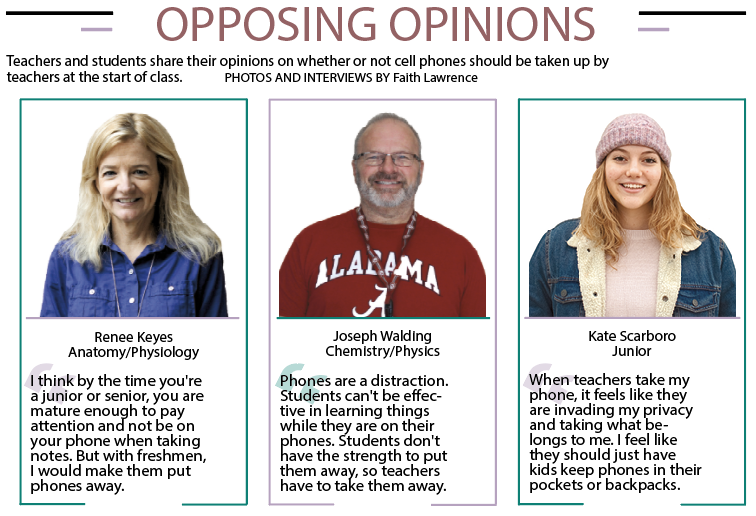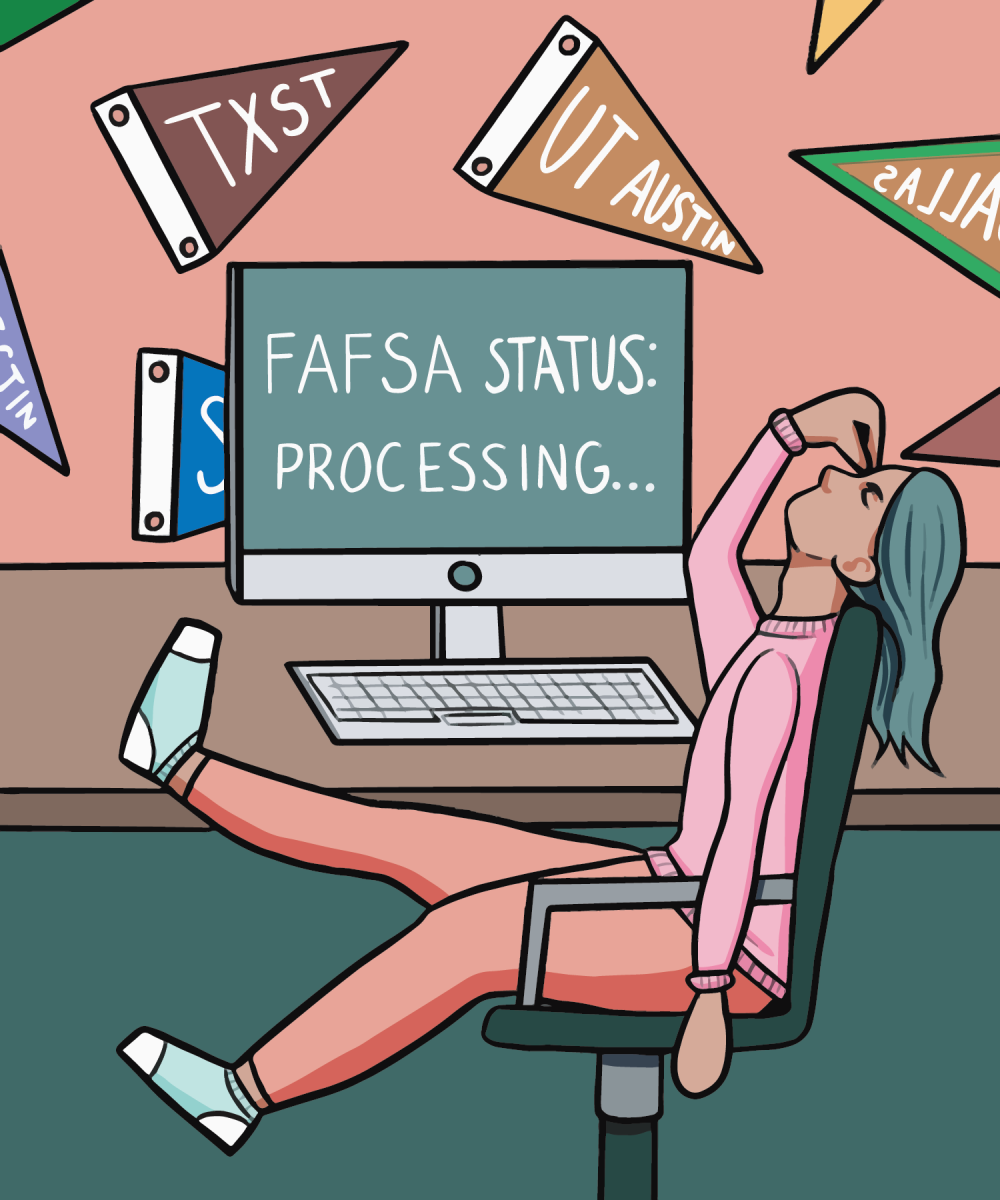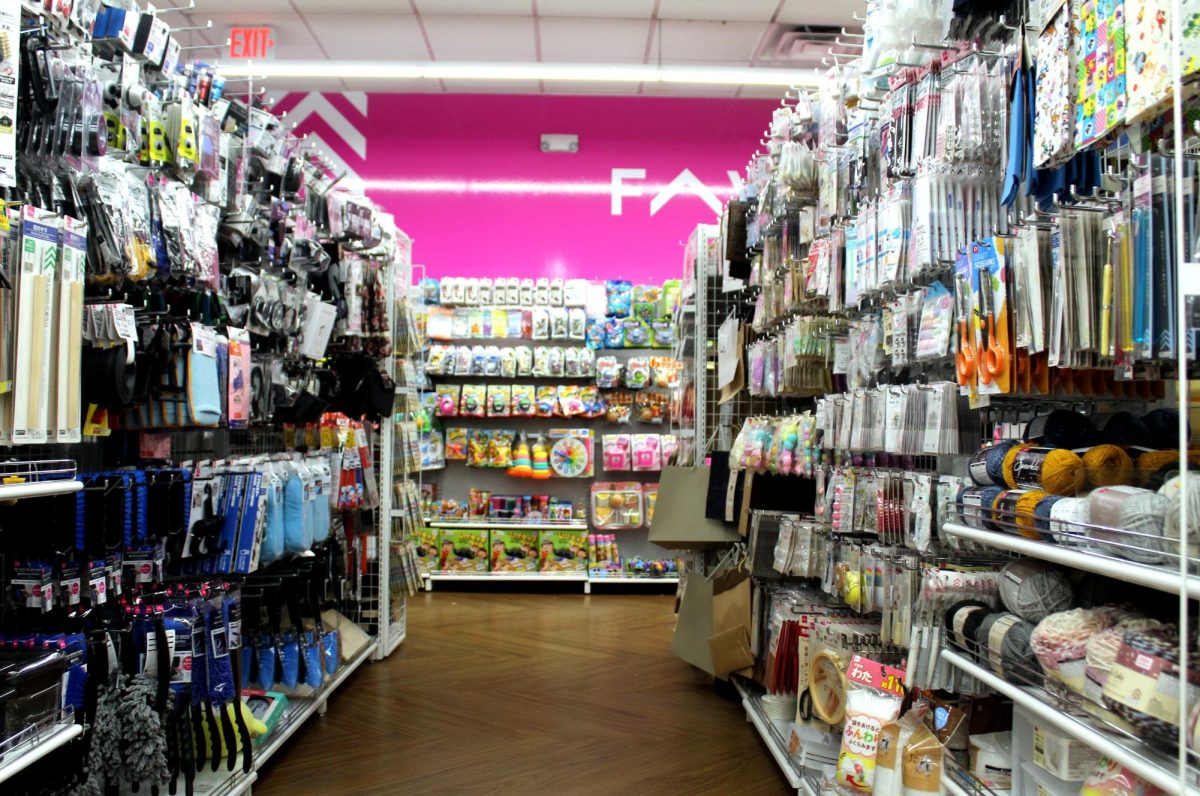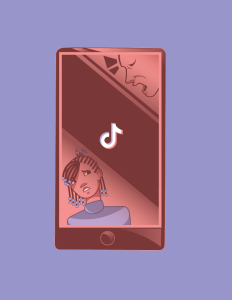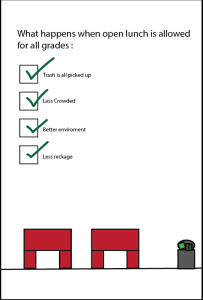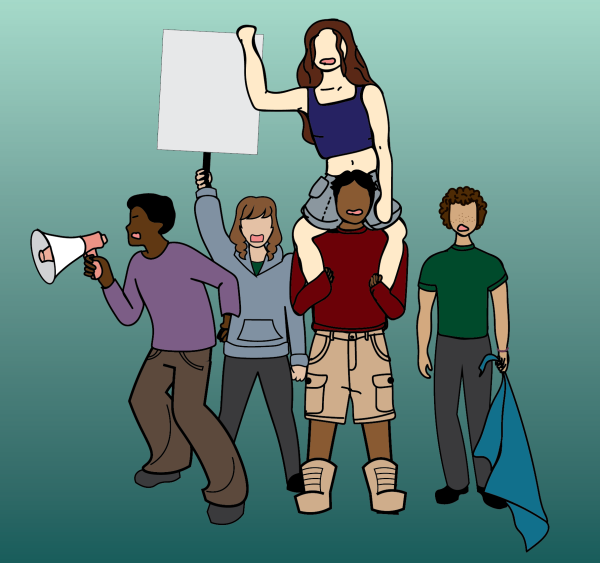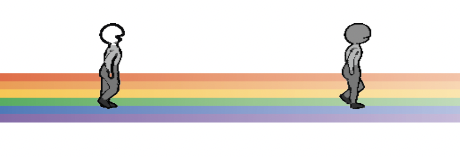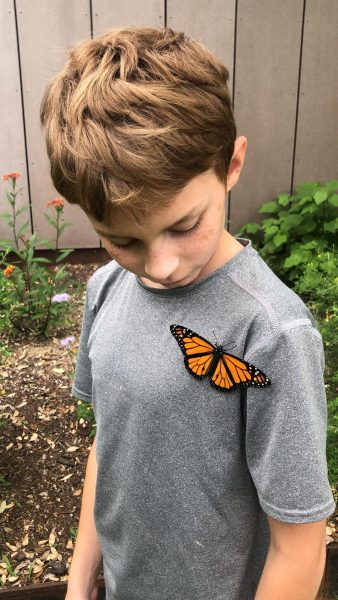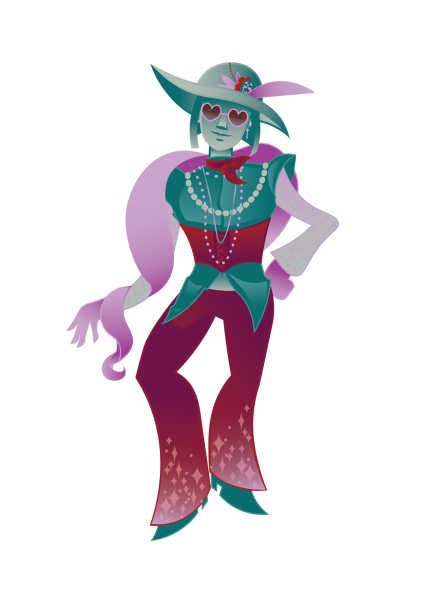Adolescent Addictions
Teachers and students share their opinions on whether or not cell phones should be taken up by teachers at the beginning of class.
February 21, 2020
You wake up on a Saturday morning and take out your phone to scroll through TikTok for several hours before getting out of bed. After getting ready, you make a cup of coffee and go back to bed, turning on your computer to re-watch episodes of The Office, eyes switching back and forth between screens as you check your phone for any Snapchat or iMessage notifications.
Addiction Treatment categorizes all addictions into two categories: substance addictions, which include addictions to different types of alcohol and drugs, as well as behavioral addictions like exercise, gambling, technology and eating.
“When we get the mentality of ‘I wish there were more hours in the day’ instead of ‘I need to take some things out of my day’, we’re really setting ourselves up to need something to be an escape,” psychology teacher Kris Grandinetti-Johnson said. “The phone is an escape, the computer is an escape. Something that lets you zero out, and that’s what you kind of unwittingly do.”
TECHNOLOGY
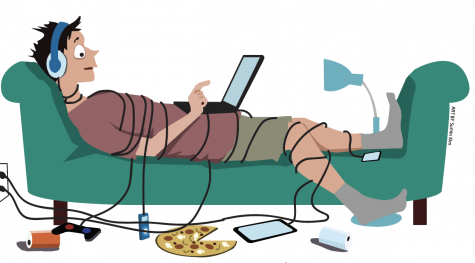
According to an article by the Newport Academy Teen Treatment Center, 92 percent of teenagers surveyed go online daily, 50 percent say that they feel addicted to their phones, and 59 percent of parents surveyed felt their teenager was addicted to their mobile device.
“I would say I have an addiction to technology because I am constantly connected to my phone,” junior Andrew Barre said. “I get home, I put my stuff down and immediately turn my computer on. I feel as if I always have to be connected, even if that’s not really the case.”
In June 2018, a teenager in the United Kingdom was diagnosed with the first case of internet gaming addiction according to a newspaper in the UK, The Trumpet. Additionally, Organic discusses a study in Britain that concluded at least half of teenage suicides were related to bullying both in-person and online.
“I noticed there is this kind of subtle effect when you are looking at somebody having more fun than you, even if you know that’s just their highlight reel,” Grandinetti said. “It’s still such a strong visual to your brain that even the strongest of wills can start to compare themselves or be envious.”
Grandinetti believes that the increased use of technology in schools has added to teenagers being addicted to technology. She said the use of technology in classrooms has become part of a large problem with addictions and the physical toll excessive use of technology can cause, light the back-lighting of screens affecting your vision and posture problems from looking down at phones.
“[Technology] is just like an escape,” Barre said. “When I’m playing video games or watching some useless video on YouTube, I’m not worrying about school and I’m just living in the moment. It’s just an escape from the pressures of the real world and pressures from school.”
CAFFEINE
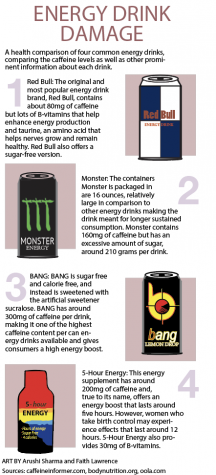
Many energy drinks are loaded with sugar which is good for short-term performance but, according to Body Nutrition, will eventually lead to a sugar crash shortly after a person’s insulin levels peak in response to the excess amount of sugar. CNN Health reported on the death of a teenager from South Carolina due to the consumption of excess levels of caffeine.
“Drinking caffeinated drinks can cause an irregular heartbeat and cause kids to bounce off the walls,” health teacher Sam Degelia said. “If you’ve got a health issue and don’t know it, drinking excess levels of caffeine can kill you. Even though it’s addictive, I would recommend trying to stop drinking caffeine. The longer you stay away from that caffeinated stuff, the more your pallet becomes used to it.”
Despite knowing the negative implications that highly caffeinated drinks can cause, students such as junior Ben Floyd* continue consuming the products.
“I drink caffeine because it gives me energy so I can focus on other things,” Floyd said. “[Energy drinks] are like happiness in a liquid form. I would probably say I have an addiction to caffeinated drinks because I will always be drawn toward buying them while at the store since I know that [the drink] is going to make me feel good.”
PRESCRIPTION DRUGS
The abuse of prescription drugs can lead to many negative implications: anti-anxiety medication, such as Xanax, abuse can cause memory problems, slurred speech, poor concentration and dizziness and abuse of stimulants like Adderall can cause high blood pressure, irregular heartbeat, insomnia and anxiety as stated by Mayo Clinic.
“Prescription medication is probably a bigger issue than anything because they have a big physical effect on a younger body,” Grandinetti said.
High school students attending public schools, according to Floyd, have easy access to such prescription drugs they are not prescribed to, like Adderall and other stimulants, as well as anti-anxiety medication and painkillers.
“Adderall kind of addicted me because of the energy and other in-the-moment positives the drug offers,” Floyd said. “However, sometimes when you come off of Adderall, every emotion that you felt before you took the drug multiplies and rushes back toward you at a higher degree.”
RECOVERY
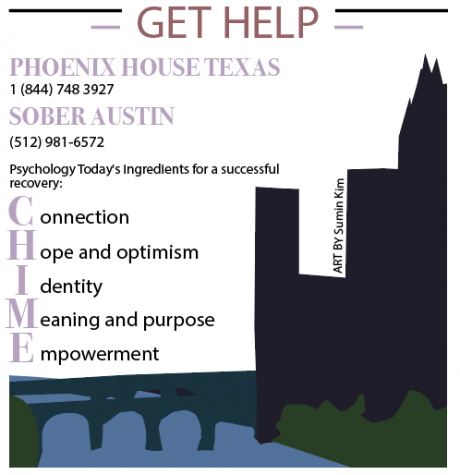 The Phoenix House, located in south central Austin, offers prevention and education services, assessment and evaluation services as well as residential services for teens struggling with substance-use disorders or mental health problems. Additionally, Sober Austin offers treatment centers and outpatient programs for teenagers in recovery from substance abuse.
The Phoenix House, located in south central Austin, offers prevention and education services, assessment and evaluation services as well as residential services for teens struggling with substance-use disorders or mental health problems. Additionally, Sober Austin offers treatment centers and outpatient programs for teenagers in recovery from substance abuse.
“We offer a very simple assessment process by licensed staff to determine how Phoenix House can best help the adolescent,” Phoenix House Director of Residential and Outpatient Services Kelly Aubry said. “If a teen is motivated to get help with their recovery they can call [us]. I think it’s important to note that if [students] are concerned that they may have a problem, the earlier they ask for help, the better.”
*Ben Floyd is a fictional name used to protect an anonymous source.



